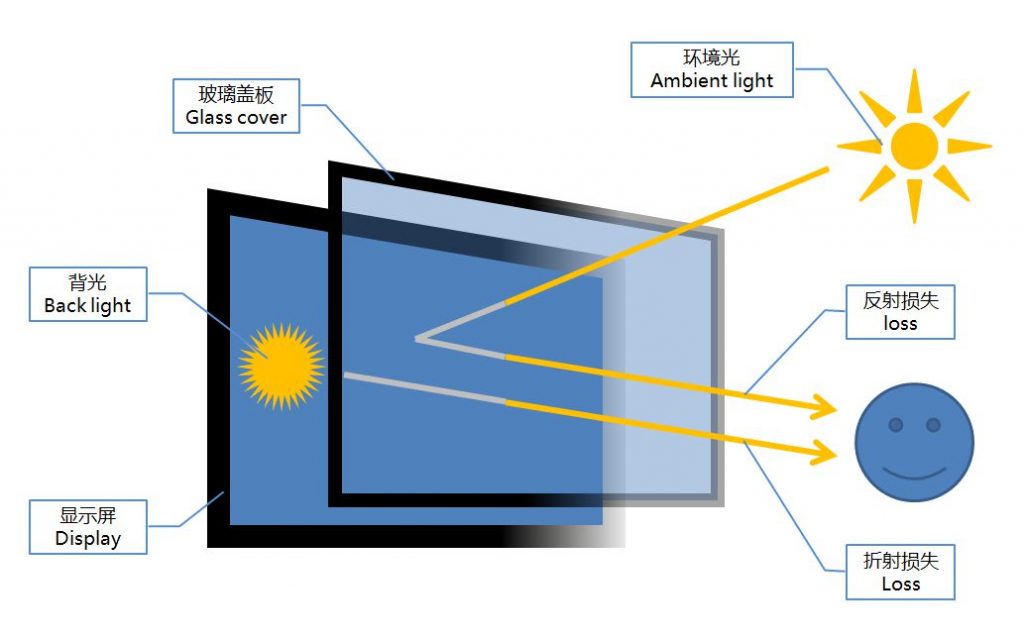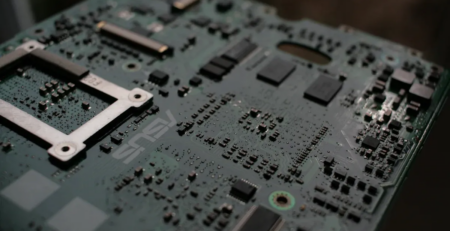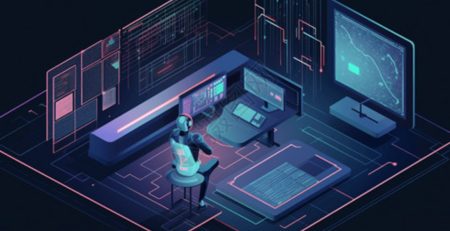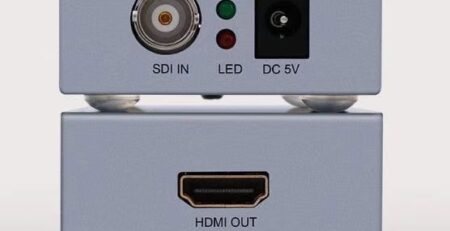Throughout your daily life, you interact with a touch screen monitor. They’re found in cell phones, ATMs, kiosks, ticket vending machines, and manufacturing factories, among other places. All of them employ touch panels to enable users to communicate with computers and other devices without using a keyboard or mouse. However, did you know that there are various distinct varieties of Touch Screens? The five most prevalent types of touchscreens are:
- 5-Wire Resistive,
- Surface Capacitive touch,
- Projected Capacitive (P-Cap),
- SAW (Surface Acoustic Wave),
- IR (Infrared).
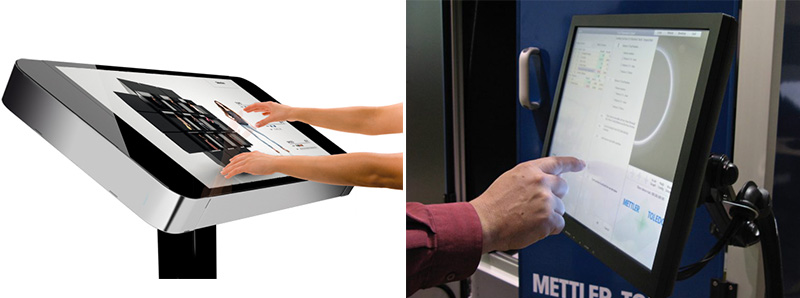
VIEW THE ENTIRE RANGE OF TOUCH SCREENS
“How does a touch screen monitor work?” we are frequently asked. A touch screen essentially takes the role of a keyboard and mouse. The following is a brief overview of five different types of touch screen display technology. The following list of benefits and drawbacks of several types of touch screens may assist you in determining which form of the touchscreen is best appropriate for your needs:
Resistive Touch Screen Monitors
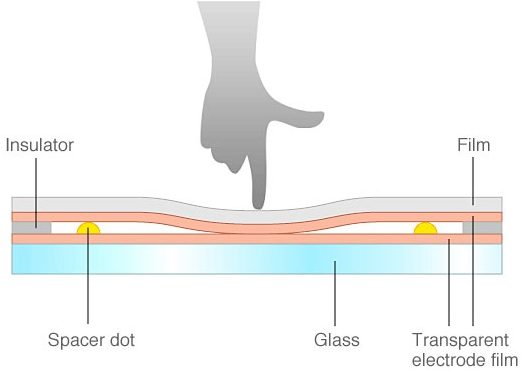
Resistive to 5-Wire Touch is the most extensively used type of touch technology today. A resistive touch screen monitor is made up of a glass panel and a film screen that are separated by a thin metallic layer. When a user touches the screen, the two metallic layers come into contact, causing an electrical current to flow. This voltage difference indicates the presence of a point of contact.
Advantages:
- Can be triggered by nearly any object (finger, stylus, gloved hand, pen, etc.)
- Has a tactile sensation
- Touch technology at the lowest cost
- Power usage is minimal.
- Resistant to impurities on the surface and liquids (dust, oil, grease, moisture)
Disadvantages:
- Image clarity is reduced in comparison to other touch technologies.
- The outside polyester film is prone to damage when scratched, poked, or pierced by a sharp item.
Surface Capacitive Touch Screen
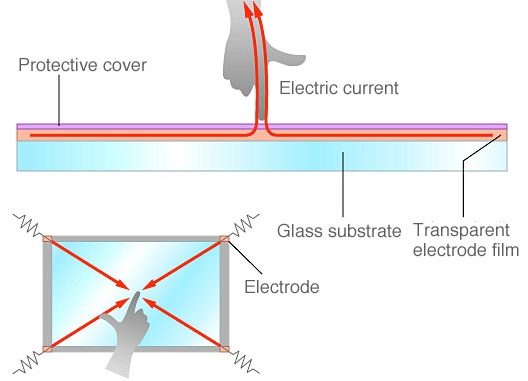
Surface capacitive touch panels are the second most prevalent touch screen type on the market. A transparent electrode layer is placed on top of a glass panel in a surface capacitive touch screen monitor. This is then protected by a cover. When an uncovered finger makes contact with the monitor screen, it reacts to the human body’s static electrical capability. A portion of the electrical charge transferred from the screen to the user is absorbed by the user. Capacitance decreases are sensed by sensors situated at the screen’s four corners, allowing the controller to calculate the touchpoint. Surface capacitive touch displays can be activated only by the touch of human skin or an electrically charged pen.
Advantages:
- Better image clarity than Resistive Touch
- The screen that is robust
- Excellent resistance to surface contaminants and liquids (dust, oil, grease, water droplets)
- Scratch resistance is excellent
Disadvantages:
- Activation requires the use of a bare finger or a capacitive stylus.
- Sensitivity to Electromagnetic Interference/Radio Frequency Interference
Projected Capacitive Touch Screen
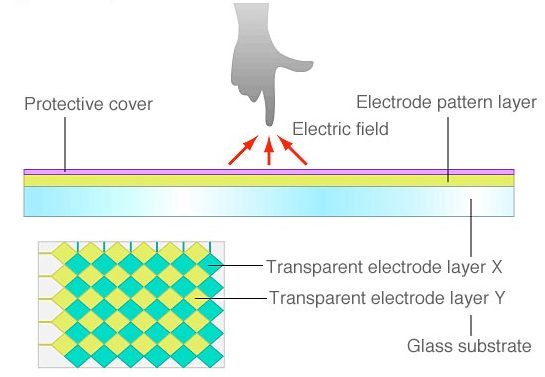
While Projected Capacitive (P-Cap) is comparable to Surface Capacitive, it has two significant advantages. It can be triggered using surgical gloves or thin cotton gloves in addition to a bare finger. Second, multi-touch activation is possible with P-Cap (simultaneous input from two or more fingers). A projected capacitive touch screen is made up of a sheet of glass with transparent electrode films inserted in it and an integrated circuit chip. This results in the formation of a three-dimensional electrostatic field. When a finger makes contact with the screen, the electrical currents’ ratios shift, allowing the computer to recognize the touch sites. All of our P-Cap touch displays are enclosed in a Zero-Bezel design.
Advantages:
- Superior image clarity
- More scratch-resistant than resistive
- Resistant to impurities on the surface and liquids (dust, oil, grease, moisture)
- Numerous touches (two or more touchpoints)
Disadvantages:
- Susceptible to EMI/RFI
- Must be activated with a finger exposed or with thin surgical or cotton gloves.
SAW (Surface Acoustic Wave) Touch Screens
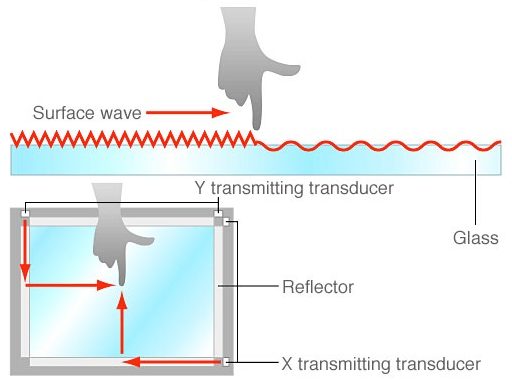
Touch screen displays with SAW (Surface Acoustic Wave) technology rely on a set of piezoelectric transducers and receivers. These are placed along the monitor’s glass plate’s sides to form an unseen grid of ultrasonic waves on the surface. A component of the wave is absorbed when the panel is contacted. This enables the receiving transducer to determine the location of the contact point and transmit this information to the computer. A finger, gloved hand, or soft-tip stylus can be used to activate SAW monitors. SAW monitors are simple to operate and provide excellent visibility.
Advantages:
- Superior image clarity
- Scratch resistance is even greater than that of surface or projected capacitive.
- Exceptional “touch-life”
Disadvantages:
- Will not activate in conjunction with brittle products (pen, credit card, or fingernail)
- Water droplets that linger on the screen’s surface can result in erroneous triggering.
- Until solid impurities on the screen are cleared, they can form non-touch zones.
IR (Infrared) Touch Screen
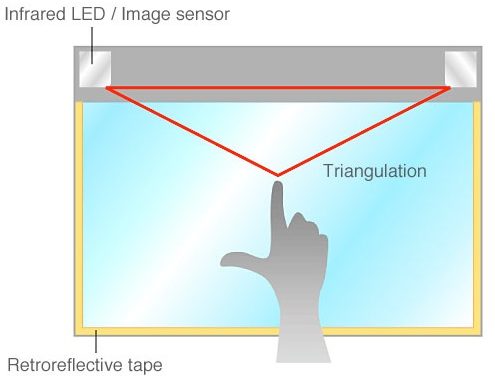
IR(Infrared) touch screen monitors do not include an additional screen or screen sandwich on top of the display. Rather than that, infrared monitors create an invisible grid of light beams across the screen using IR transmitters and receivers. This ensures the highest image quality possible. The sensors are able to locate the contact site when an object interrupts the invisible infrared light beam. The controller is then informed of the X and Y coordinates.
Advantages:
- All touch technologies have the highest image clarity and light transmission.
- Infinite “contact-life”
- Scratch-resistant surface
- Numerous touches (two or more touchpoints)
- The capability of Palm Rejection
Disadvantages:
- Accidental activation is possible due to the fact that the infrared beams are located above the glass surface.
- Dust, oil, or grease accumulation on the screen or frame may obstruct the light beam, resulting in a malfunction.
- Snow accumulation and pooling of water (such as rain) might result in erroneous triggering.
- Could be susceptible to direct high-intensity ambient light interference.
- Increased cost
RELATED: How To Clean a Touchscreen On Your Self-service Kiosk (COVID-19)
Golden Margins –
Entire Range of Touchscreen Products
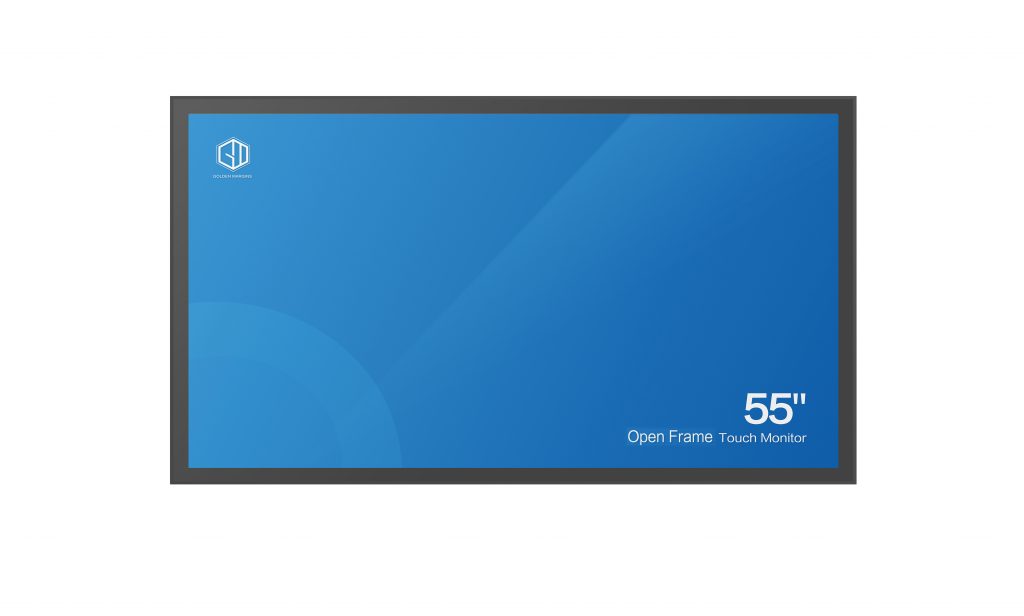
We hope you found these touchscreen or panel PCs fundamentals informative. Goldenmargins offers a broad selection of Industrial Touchscreen Monitors and Touch Panel PCs in various sizes and configurations, including medical touch screens, sunlight-readable touch screens, open-frame touch screens, and waterproof touch panels, as well as other unique touch screen or panel PC designs. You can learn more about our services HERE or by calling us at +86 755 23191996.



